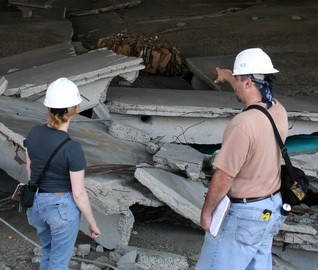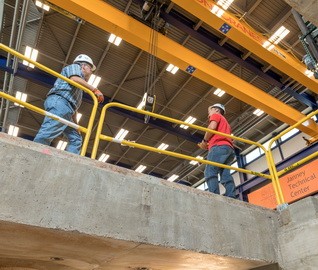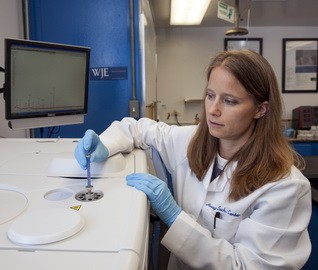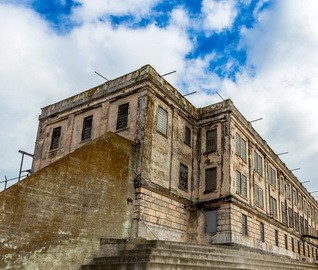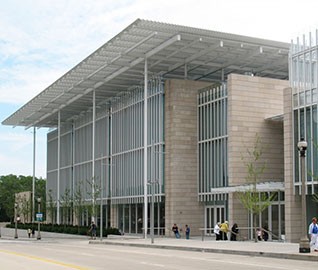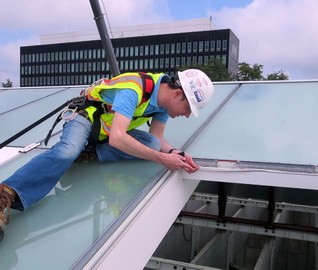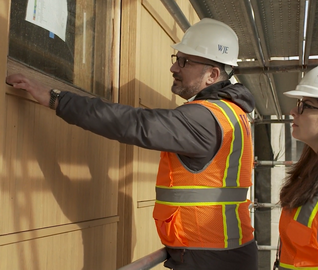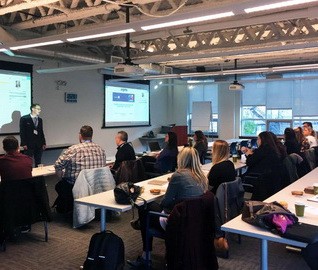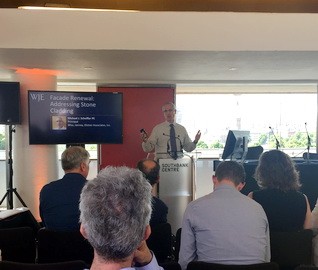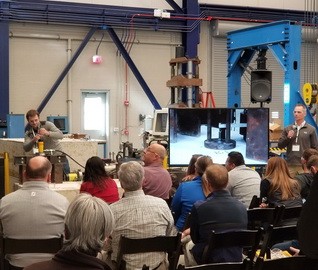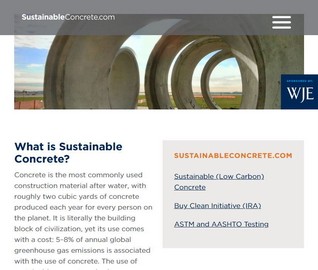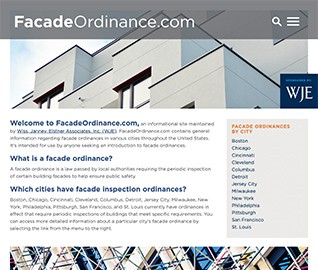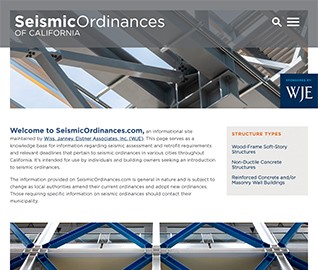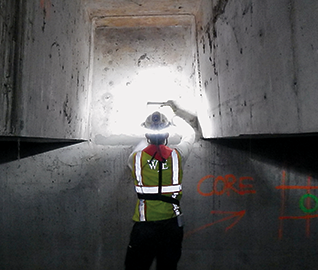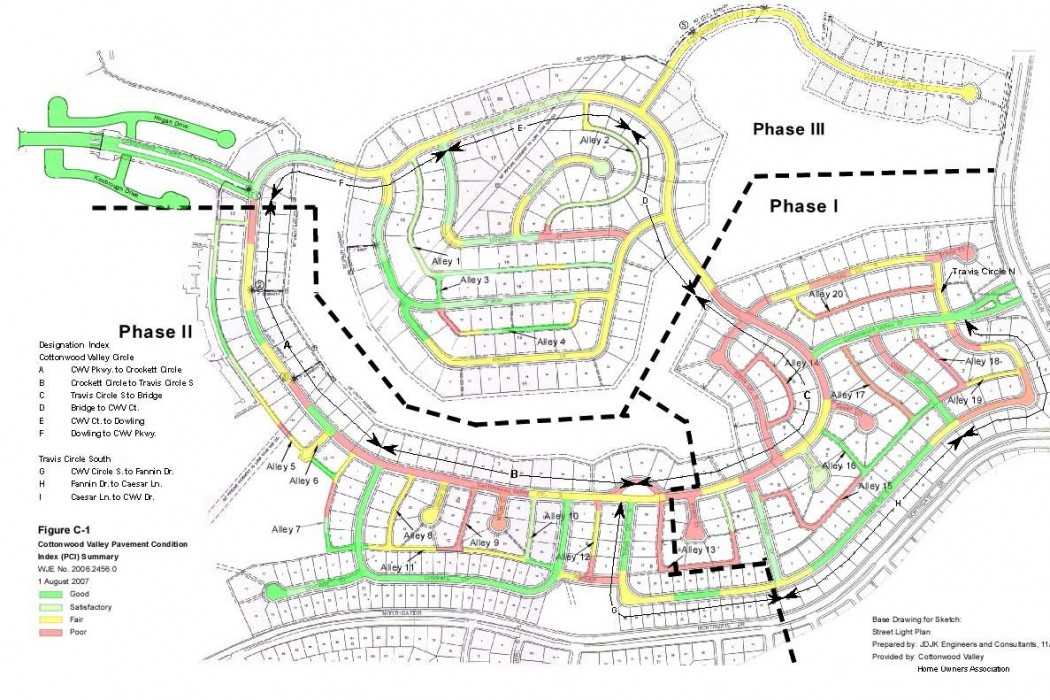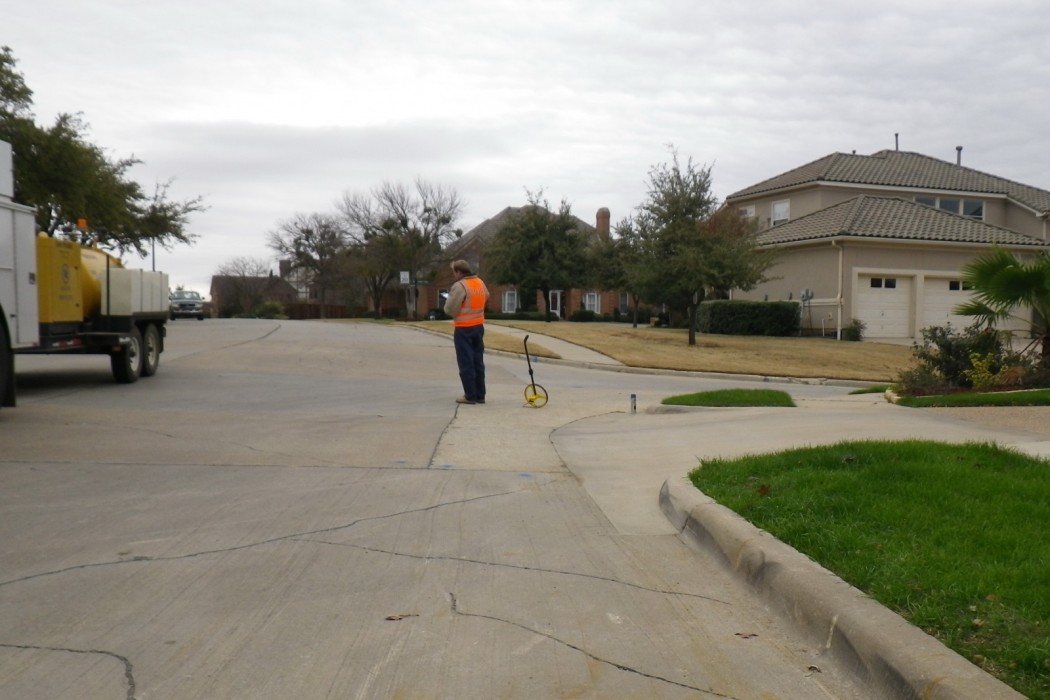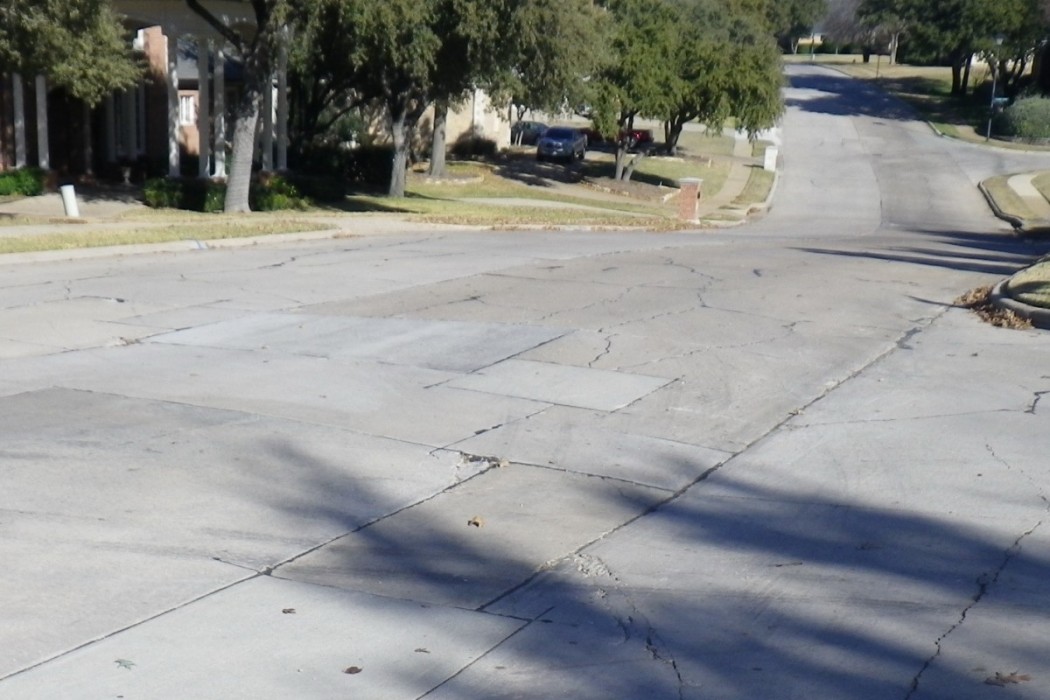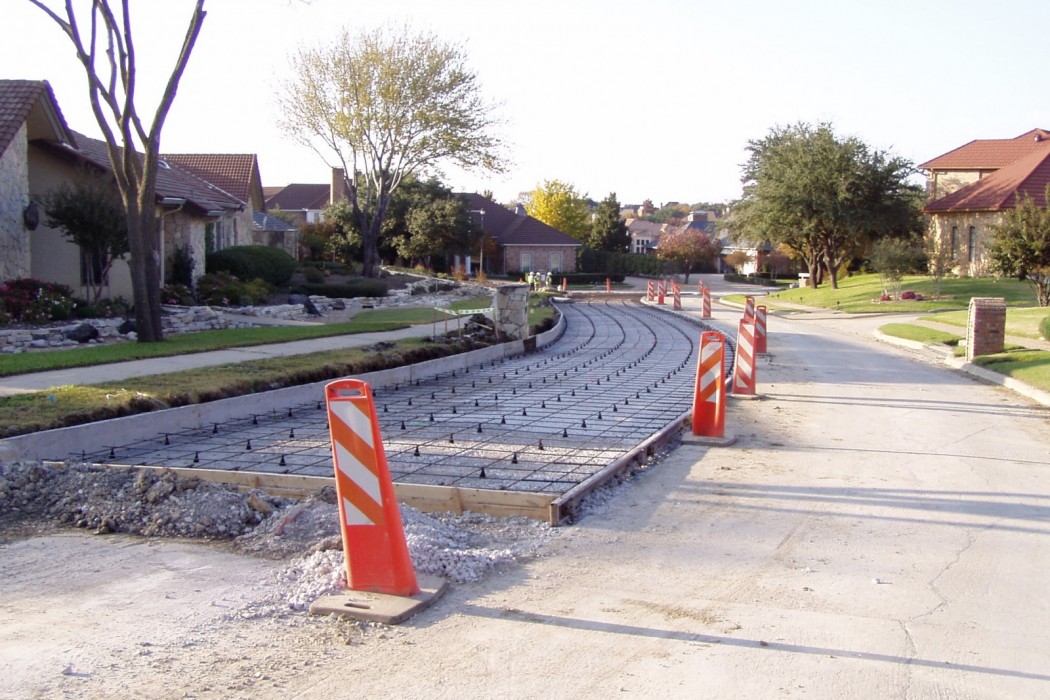WJE PROJECTS
Cottonwood Valley Subdivision
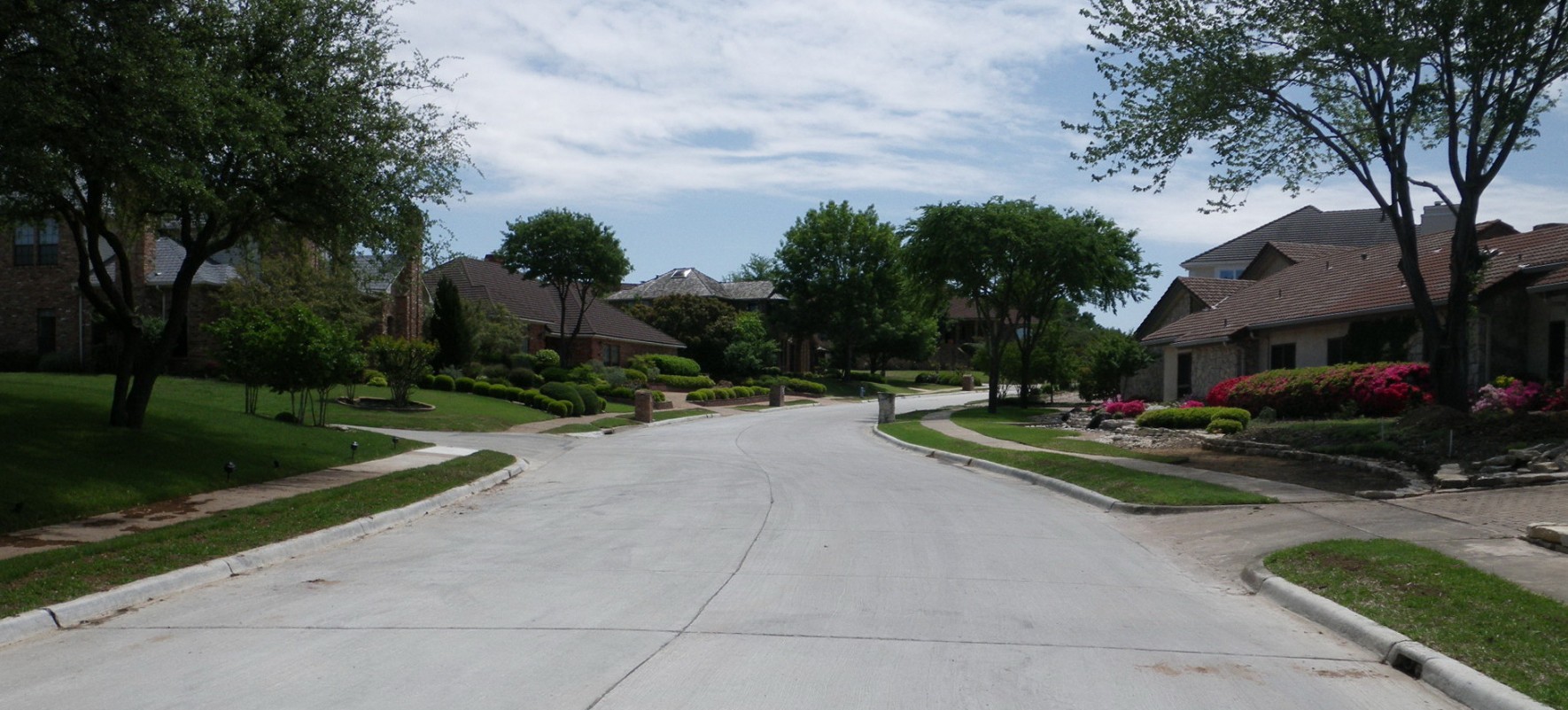

CLIENT |
Cottonwood Valley Home Owners Association |
LOCATION |
Irving, TX |
Pavement Evaluation, Maintenance, and Replacement
First constructed in the late 1970s, many of the original pavements were nearing the end of their service life. Looking to provide high quality infrastructure to residents, the Association initiated a pavement management system. WJE was retained to assess the pavement within the development, to develop a twenty-year strategic plan for ongoing maintenance, and to prepare contract documents (CDs) for several repair and reconstruction projects.
BACKGROUND
Cottonwood Valley is a 350-acre private residential development that includes approximately sixteen lane miles of portland cement concrete pavement, two security buildings, a park, and various storm water infrastructure elements. As a private development, the client is responsible for the maintenance of all street and alley pavements. The Home Owners Association (Association) funds various maintenance activities through annual assessments and investment programs. Historically, pavement maintenance was reactive, often resulting in out-of-sequence repairs or repairs that failed to meet long term performance and aesthetic objectives.
SOLUTION
To address the Association's needs, WJE first conducted a detailed assessment of all pavements in the development. This included quantifying pavement distress and condition on a panel-by-panel basis; the assignment of a pavement condition index (PCI) to each section; pavement, base, and subgrade sampling and laboratory characterization; and the development of various maintenance, repair, and reconstruction strategies to span a twenty-year interval. WJE has continued to provide pavement consulting services for several years by developing plans and specifications for four pavement repair programs and the reconstruction of 1.2 lane miles of deteriorated pavement. The $1.4 million reconstruction project included significant coordination with both the City of Irving and the Association because the project scope was expanded during design development to include utility replacement on behalf of the City of Irving, who owned and was responsible for below grade water and sanitary sewer lines. The final schedule was critical in order to assure City funding within the scheduled fiscal year and the Association's available funding. The project was bid with the successful contractor coming in under the program budget and the overall project, including design fees, was completed within budget.
RELATED INFORMATION
-
 Our materials scientists provide comprehensive consulting services for the evaluation and... MORE >Services | Materials Evaluation and Testing
Our materials scientists provide comprehensive consulting services for the evaluation and... MORE >Services | Materials Evaluation and Testing -
 Our professionals deliver practical repair and rehabilitation services that maximize the... MORE >Services | Repair and Rehabilitation
Our professionals deliver practical repair and rehabilitation services that maximize the... MORE >Services | Repair and Rehabilitation -
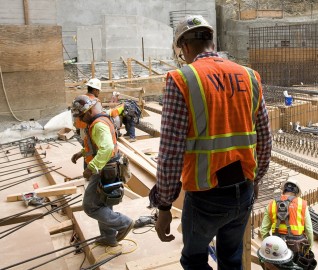 We work with owners, project architects and engineers, and contractors to execute successful... MORE >Services | Construction Observation and Troubleshooting
We work with owners, project architects and engineers, and contractors to execute successful... MORE >Services | Construction Observation and Troubleshooting



